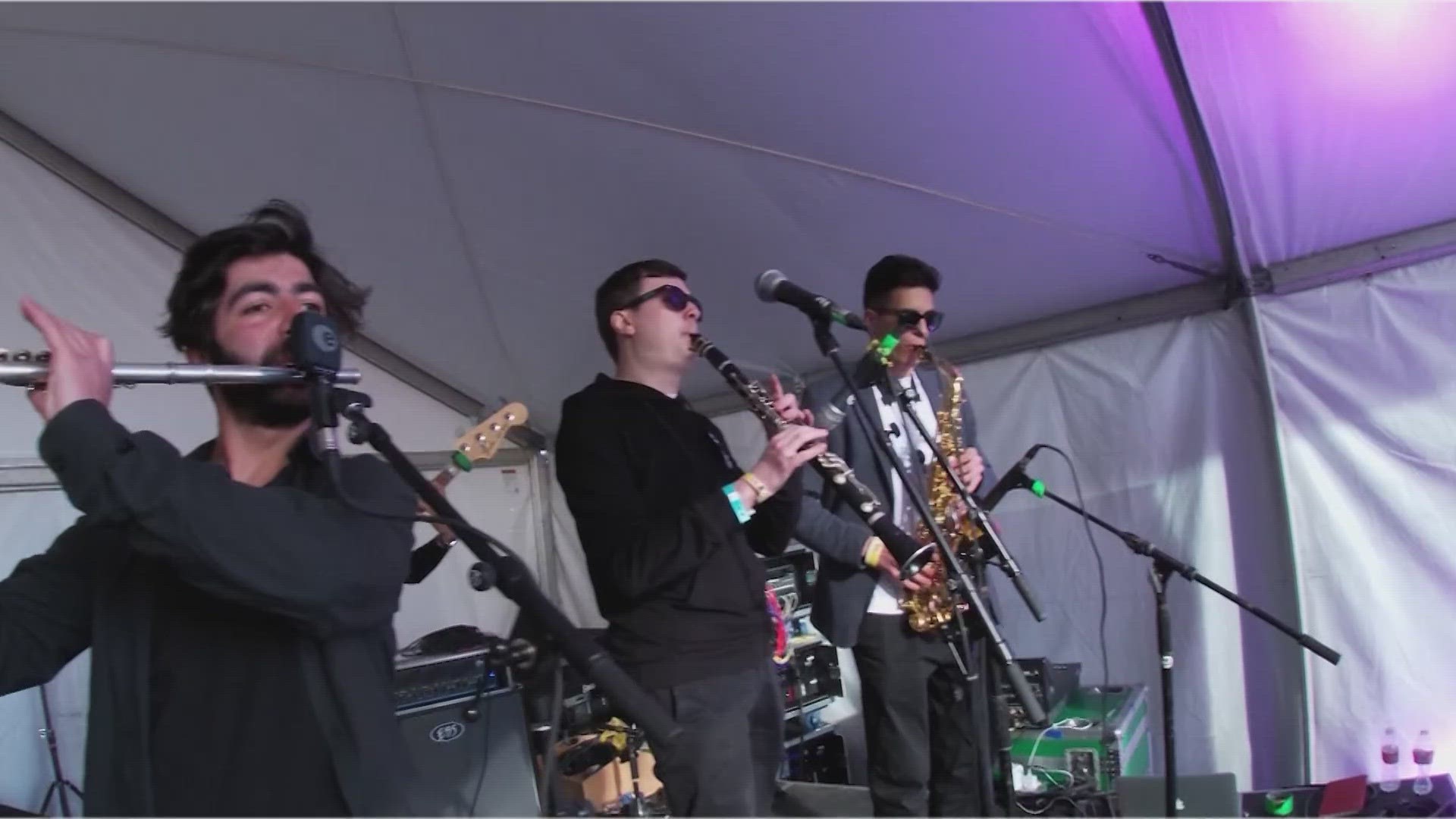AUSTIN, Texas — Editor's note: This story has been updated to include additional context about the resolution the city council passed.
"Live here, play here" is the idea, and Austin musicians who perform at City events will now be paid in a more consistent way.
On Thursday, July 20, the Austin City Council approved a plan that changes the standard pay for performances at City-commissioned events.
The proposed resolution arose after controversy over what artists earn playing South by Southwest (SXSW). This past spring, a musicians union petitioned for the festival to increase how much it pays artists. SXSW responded by announcing a pay bump for artists playing next year's event.
Some Austin City Council members said they recognize musicians are a crucial part of keeping Austin the "Live Music Capital of the World," and they wanted to do something to entice them to stay here. Councilmember Ryan Alter (District 5) sent the following statement to KVUE via email:
“While it's almost impossible to put a true value on live music for our culture and economy, Austin wouldn't be Austin without our talented musicians. But each year more musicians are leaving Austin due to our affordability crisis. This resolution aims to help reverse that trend by requiring a premium rate for all City-commissioned live music performances. I’m thankful to live in the Live Music Capital of the World, and I hope this action serves as a model for other organizations across the city.”
On Thursday, the council discussed whether to make the standard rate $200 per musician per performance for those performing live at City events. That's compared to the $150 hourly rate established in 2016.
It's essentially a decrease in the minimum standard pay. A City spokesperson told KVUE that venues like the airport misunderstood the previous standard rate of $150 per hour. Instead, they were paying musicians $150 for two 50-minute performances.
This adjustment to the standard pay, while it will be a pay decrease, is said to have clear language for City employees so that all musicians get paid the same, no matter the venue.
Musician James Bookert said many musicians have to work two jobs because of the low pay in the music world.
"I haven't had any seizures since 2020," Bookert said. "Having a job helps. Having a side gig helped me with paying for a lot of those expenses. I had the ambulance bill that I paid a couple of months ago."


Bookert has been in the music industry for about a decade and is finally at a point where he is leaving his side job to pursue music full-time.
Making a living wage in Austin is tough for some, but Bookert said he's happy the City is having conversations about raising the wage.
"That's a step in the right direction," he said. "It's not a lifesaver. The bulk of Austin musicians' gigs aren't with the City of Austin... I think for a lot of like, median, low-income families and some of whom are musicians, that there's an affordability crisis that isn't being addressed, especially with housing."
According to the resolution, the pay rate is to be used by all City departments hiring musicians. The rates are:
- $200 per musician for groups of up to six people
- $150 per musician for groups between seven and 10 people
- $1500 total for groups of musicians of 10 or more
However, Aaron Lack, president of the Austin Federation of Musicians, said the second and third rates listed above are unfair. He said as the groups get bigger, the standard wage decreases.
"I don't think these larger groups should be punished for having more members," Lack said. "The industry standard doesn't support that."
In an email Lack sent to the city council, he said the bigger the group is, the more money is needed to pay them and produce a live show. An excerpt of the email can be read below:
"Other fees are added as the ensemble increases in size and complexity like music preparation, orchestration, arranging, copyist costs, etc... The base rate does not decrease, as it is more difficult to present a larger ensemble, not less difficult, and there is certainly no cap at which the employer is not responsible for paying for more musicians, as described. This resolution would damage musicians' ability to negotiate compensation for performances as it is inadequate, ill-advised, and uninformed."
While Lack is appreciative that the city council wants to raise the base pay for musicians, he said the rates will not benefit larger music groups.

